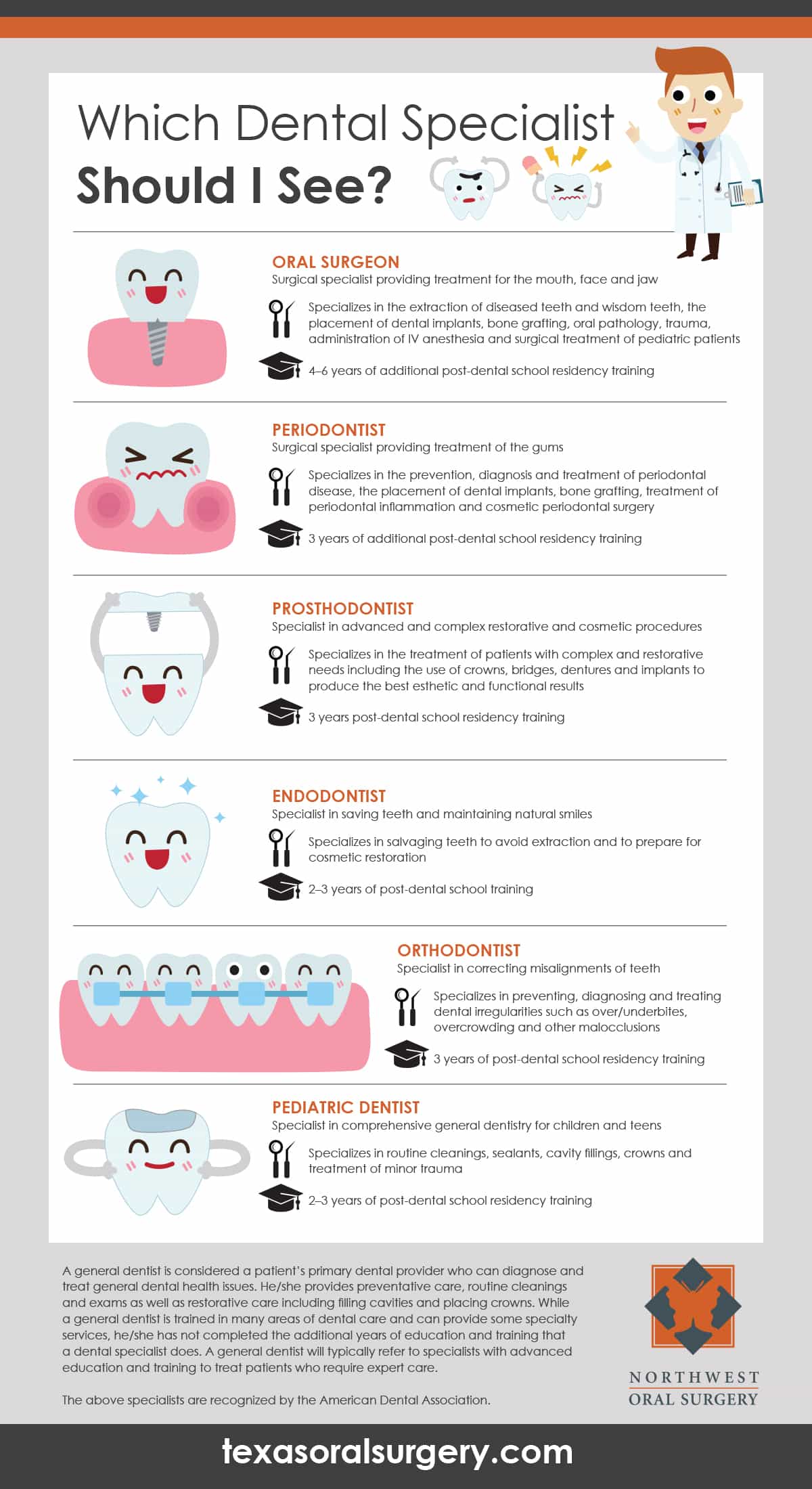Oral Surgeon? Periodontist? Prosthodontist? Endodontist? Orthodontist? Pediatric Dentist? How do you know which dental specialist to see? Check out this helpful infographic to find out.
Month: August 2017
Be Your Own Healthcare Advocate
Whether you are preparing for an elective surgical procedure or an intense round of chemotherapy, it is important to be an advocate in your own healthcare.
1. Be prepared for your visit with your physician:
a. Know your medical background including previous illnesses, diagnoses, and surgeries.
b. Provide a list of current medications, physicians and treatments.
c. Bring insurance information and ID to your appointment.
2. Avoid costly and unexpected medical expenses by understanding your health insurance benefits including:
a. What are your deductibles, co-pays, maximum benefits and maximum out-of-pocket amounts?
b. Is your physician an in-network or out-of-network provider?
c. Is the hospital an in-network or out-of-network facility?
3. Invite a friend or family member to your doctor’s appointment if you feel like you need a second set of eyes and ears. Ask your companion to take notes. Later you can later discuss what was covered in the appointment.
4. Be assertive. Ask questions. It is not disrespectful to question your doctor about a diagnosis or a treatment plan.
5. Stand up for yourself. If you don’t agree with a treatment plan, say so. Ask for other options.
6. Educate yourself about your diagnosis and treatment plan. There are many credible books, articles and reputable websites on the internet. Avoid chat rooms, forums and other untrustworthy sites where opinions exceed facts.
7. Seek second or third opinions.
8. Acknowledge your intuition. If your gut is telling you that something isn’t quite right, then make a change in your doctor and/or treatment plan. You should feel 100% comfortable with your doctor, the staff, and the prescribed course of action.
9. Review the medical bills. Don’t assume that your health insurance is paying its part or that the doctor’s office hasn’t charged you in error. Communicate with the office is you see something that isn’t correct.
It is your health. Take charge of it. Gain the knowledge and confidence that will empower you to make the best decisions for your health.
For more helpful tips and information, visit our Patient Resources page.
Bone Graft and Dental Implants
Missing teeth should be replaced and the best option for replacing missing teeth is through the use of dental implants and restorative crowns, bridges or dentures. Dental implants provide the foundation for the most natural, stable and comfortable replacement solution.
When a patient loses a tooth, we recommend that it be replaced as soon as possible. By doing so, the risk of losing critical bone is minimized. For an implant to be successful, adequate bone is required.
When a tooth is missing, the constant biting force is no longer occurring which is crucial to keeping the jawbone healthy. Without this force, a patient’s jawbone will deteriorate and become too thin and soft to support a dental implant. In this case, a bone graft will be necessary.
A bone graft requires a surgical procedure to fill a void where bone is absent. In addition, a bone graft will encourage and facilitate bone regeneration. Some bone grafts are bigger than others. The longer that teeth have been missing, the more bone loss will occur. With advanced bone loss, grafting will be more extensive and involved.
The surgeons at Northwest Oral & Maxillofacial Surgery are trained and experienced in bone grafting procedures. The materials that the surgeons place have been carefully chosen and patients are given the option of an autograft, an allograft or a xenograft:
Autograft: The use of a patient’s own bone to rebuild and prepare the jawbone for an implant. It typically involves taking bone from the patients jaw or chin and placing it where needed.
Allograft: Graft from human bone, typically from a cadaver. At Northwest Oral & Maxillofacial Surgery, we only obtain allograft materials from reputable tissue banks. The cadaveric bone has been treated and purified multiple times and is neutral to immune reactions. In addition, donors are screened for known diseases and are certified safe for use by the American Association of Tissue Banks.
Xenograft: Graft from animal bone, typically a bovine. Xenograft materials have been physically and chemically treated to be comparable to human bone graft material.
If you are considering a dental implant and require bone grafting, we encourage our friends, family and patients to use a qualified dental specialist, such as an oral surgeon, to coordinate a safe surgical procedure and beautiful restoration. Please contact us today if you have questions or would like to schedule an appointment with one of our board-certified oral and maxillofacial surgeons.
